For a long time, the people of Nghia Lo believed that they had to go far away from their hometown to make a living and develop. On the contrary, only people from all over the country could get rich in the land of flowers. This article is about a Nghia Lo native, but he had a strong belief that he would change that deep-rooted belief.
Northwest mountains and forests become more brilliant thanks to high-end resort projects
Before going into the main content of the article, let me say a few words to clarify the concept of Nghia Lo in the "Nghia Lo curse". Accordingly, Nghia Lo here is not only limited to the framework of Nghia Lo town as it is today but is an entire province established in the 60s of the last century. After many times of merging and separating, most of Nghia Lo province now belongs to the west of Yen Bai province, including Mu Cang Chai, Van Chan, Tram Tau districts and Nghia Lo town.

The Northwest has started to get cold this season. The sun is more sluggish. Frost still lingers on the terraced fields, which are now mostly just stubble. In the dry autumn weather, around a cup of hot, steaming Shan Tuyet tea - a specialty tea of the Van Chan region, I first heard of the concept of "Yen Bai tourism road". Sitting in front of me, Mr. Dao Xuan Thinh (born in 1970) does not have the polished appearance of most businessmen in the resort and high-class hotel industry that I have met. In him, there is the genuineness of a mountain man, the stubbornness of a daredevil and the callousness of a time of youthful rebellion. Mr. Thinh enthusiastically said: Yen Bai tourism road starts from Nghia Lo town, goes to Tu Le and ends at Mu Cang Chai. The three locations, each about 1 hour away from each other, but have different core values.
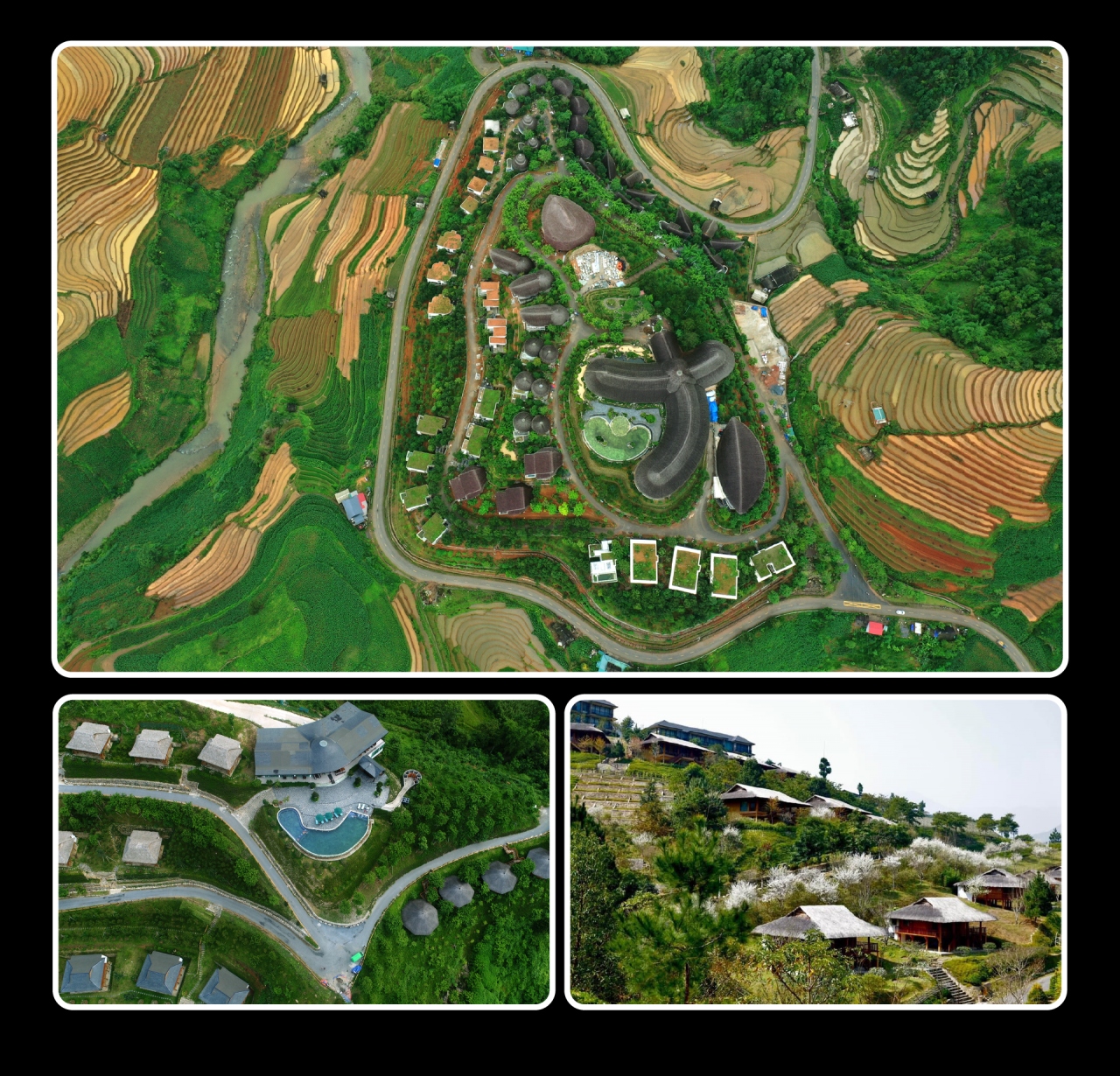
Nghia Lo is a dynamic and youthful town, a cultural intersection of many ethnic groups with Xoe dance performances imbued with Muong Lo. At an altitude of 200 m above sea level, surrounded by mountain ranges, Nghia Lo has a cool climate all year round, little rain, and temperatures often fluctuate around 24 degrees. Tu Le is the "muse" of the Northwest with the unique culture of the Thai people, at an altitude of up to 600 m above sea level. Mu Cang Chai is at an average altitude of about 1,200 m above sea level, famous for its wild natural beauty, majestic terraced fields and unique culture of the H'Mong people. With their own diversity and differences, the three points will complement each other and form the core for the tourism development of Yen Bai. - So what do you do?, I asked. - I have invested more than 500 billion VND to have a Le Champ Tu Le (Tu Le commune, Van Chan district) and am building a nearly 6-star resort in La Phan Tan commune, Mu Cang Chai district with a capacity of 200 rooms, a total investment of nearly 600 billion VND. In addition, I am working with a Singaporean partner to build another high-class resort in Bon village, Van Chan district. This is a resort with hot mineral springs, with a total investment of approximately 1,000 billion VND...

The conversation became more and more animated around the teacup, which was filled and then emptied. The sun gradually rose in the deep blue sky. The early rays of sunlight carried the steam, dyeing the Muong Lo valley yellow, reflecting the bright clouds that were stirring like a sea around the mountain peaks. The last time I met Mr. Dao Xuan Thinh was around 2018, when the tourist area in Tu Le had not yet fully taken shape. When some people were concerned about doing resort tourism in a location with inconvenient roads, he only answered firmly:
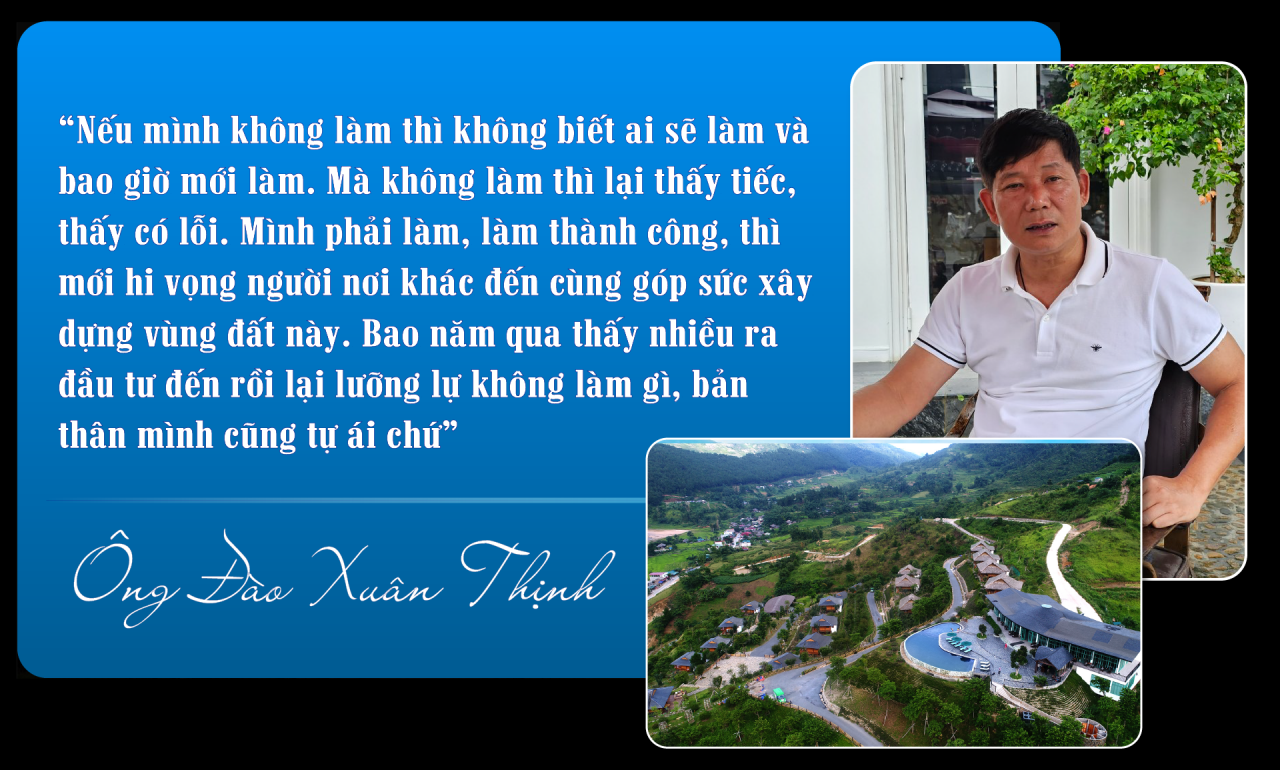
After 5 years, the pride of the man born in the early 70s has contributed to the difficult land a neat and luxurious 4-star resort complex. Le Champ Tu Le has now completed phase 1 with a scale of 150 rooms and has become a familiar name in the travel community, partly proving the sharp thinking of an amateur. "Taking advantage of locally available bamboo, rattan, and wood materials, we have created a resort with dozens of stilt houses on the slopes arranged in layers, like a native Thai village. Although the pandemic still has some impact, it is gratifying that the room occupancy rate of Le Champ Tu Le is very high," Mr. Thinh proudly said. Then he confided that now, his passion is temporarily focused on Mu Cang Chai Resort. In addition to becoming a tourist highlight, when put into operation, the project will create jobs for about 150 local workers. Step by step, we will improve the image and local economy as well as the lives of the people. “I am very worried. The question always lingers in my mind: Why is Mu Cang Chai so beautiful but the people are still poor and do not benefit from it? Mu Cang Chai’s specialty is terraced fields, but how much rice can be harvested from growing rice? But if rice is combined with tourism, it will be much more effective, so I have to do it,” he confided.
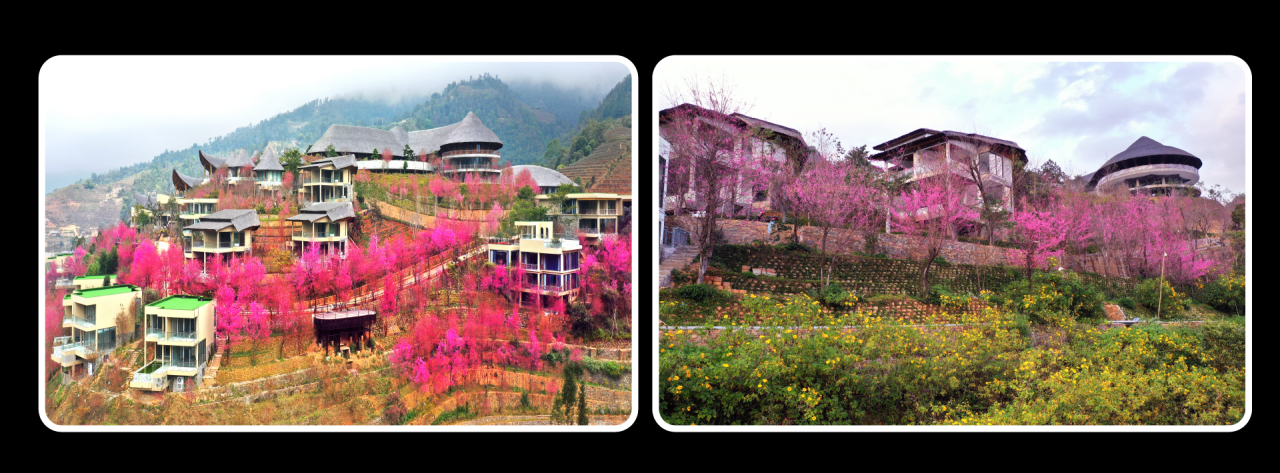


The sun rose higher, spreading its fan-shaped rays through the spacious rows of houses of the Western Hotel - the architectural symbol of Nghia Lo town, where we had morning tea. I looked around, the Western Hotel was a row of low-rise white-painted houses along Dien Bien Street with a sophisticated European architectural style. The first floor was the beverage service area with the interior of the room being dark leather sofas. Outside the lobby were a few sets of curved iron tables and chairs with burgundy sun umbrellas. Mr. Thinh excitedly said: “That year, the Western Hotel was very degraded, the local authorities planned to demolish it and divide it into 20 lots for auction. The land was located right on the main road in the center, so many people were interested. I thought about the scene of 20 lots of land followed by 20 houses, what would be the face of the town anymore, so I tried every way to buy them all. After that, I focused my efforts on renovating and keeping the hotel as it is now.” Back in the 1990s - 2000s, according to the story, Mr. Dao Xuan Thinh was destined for the mining sector. Thinh Dat Joint Stock Company was established, Mr. Thinh was the general director, the main mine was in Mu Cang Chai. “All shareholders are my brothers, friends and mostly local people. We do not calculate profits and losses, because we do not know when we will recover enough capital, but we will contribute whatever we can to develop our homeland,” he confided. After many years of building a business, accumulating capital and increasing life experience, he began to seriously think about the “Nghia Lo curse” - saying that Nghia Lo people will never be able to get rich in their homeland. “I don’t know about the previous generation, but it is true that the generation after me finds it very difficult to keep talented people. Personally, I feel that I owe my homeland too much. So I have to do it,” he confided.
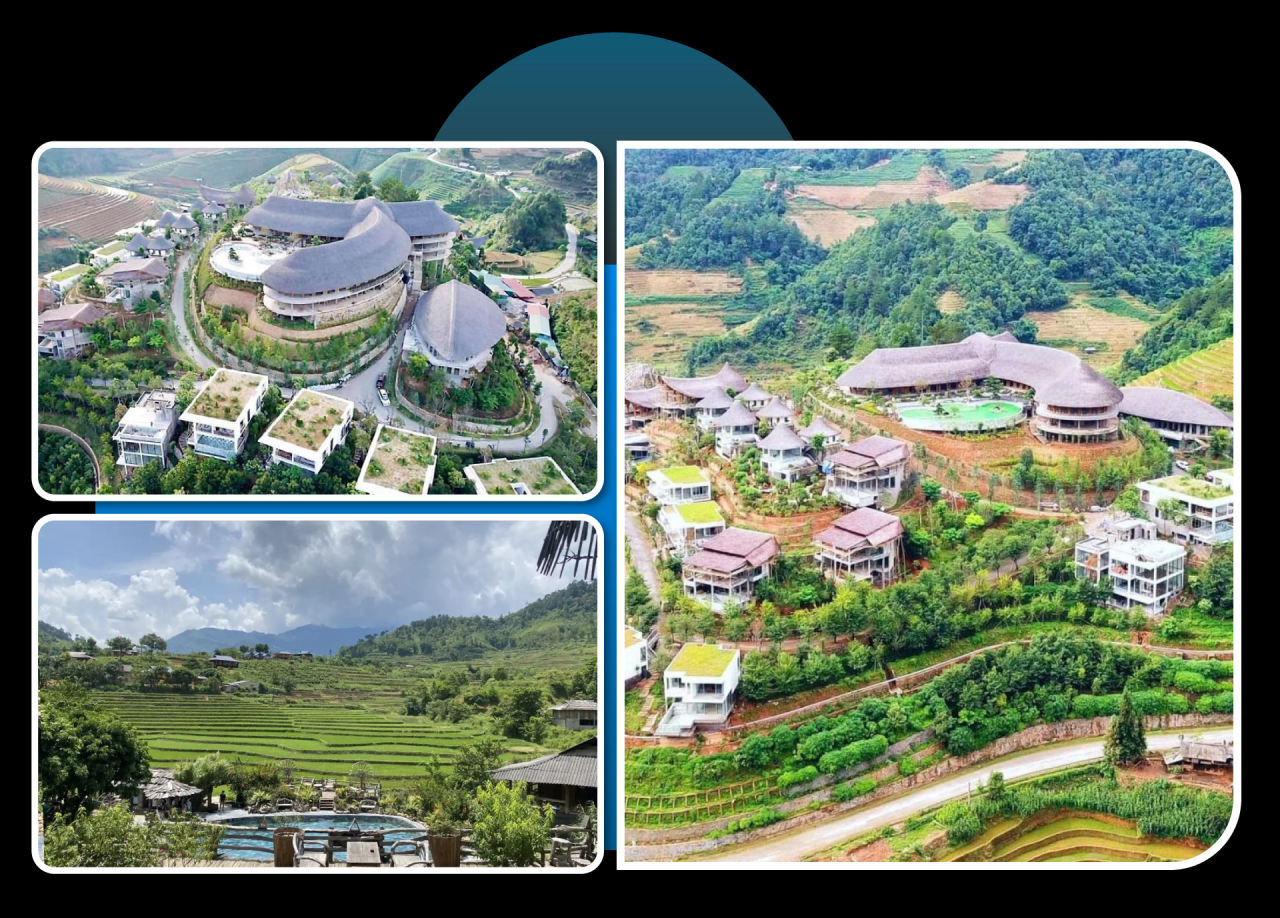
So an amateur started the foundation bricks in the tourism sector by investing in a number of hotels in the center of Nghia Lo town. The story that he is still passionate about is to keep the original shape of the Western Hotel. Now, when gradually becoming the "boss" of the resort sector in Yen Bai, Mr. Thinh's system has created jobs for thousands of local workers. Among them are many young people with formal education who have joined the army. He was also elected Chairman of the Western Yen Bai Business Association. "I have proactively contacted and invited 15 employees with university degrees or higher to return to work at the company in Nghia Lo. This is something that is very rare because they all have the mindset of going far away", Mr. Thinh said and shared that to dispel the "Nghia Lo curse" also thanks to the great help from the local government. That is also why, whenever the highland districts of Yen Bai have storms, floods, or natural disasters, Mr. Thinh is always the pioneer in supporting. In early August 2023, heavy rains caused flash floods and landslides, isolating many communes in Mu Cang Chai district. Mr. Thinh mobilized the company's vehicles, machinery and human resources to the "flood center" to clear the road to help people. At the end of the morning tea, the 53-year-old man confided that whatever he does, he always focuses on the local people for development. In every place where he invests and develops projects, he prioritizes the use of local labor. He also enthusiastically helps the H'Mong people develop the profession of making rice wine combined with pig farming; the ancient Thai people restore the traditional weaving area of hundreds of years...
Laodong.vn Source

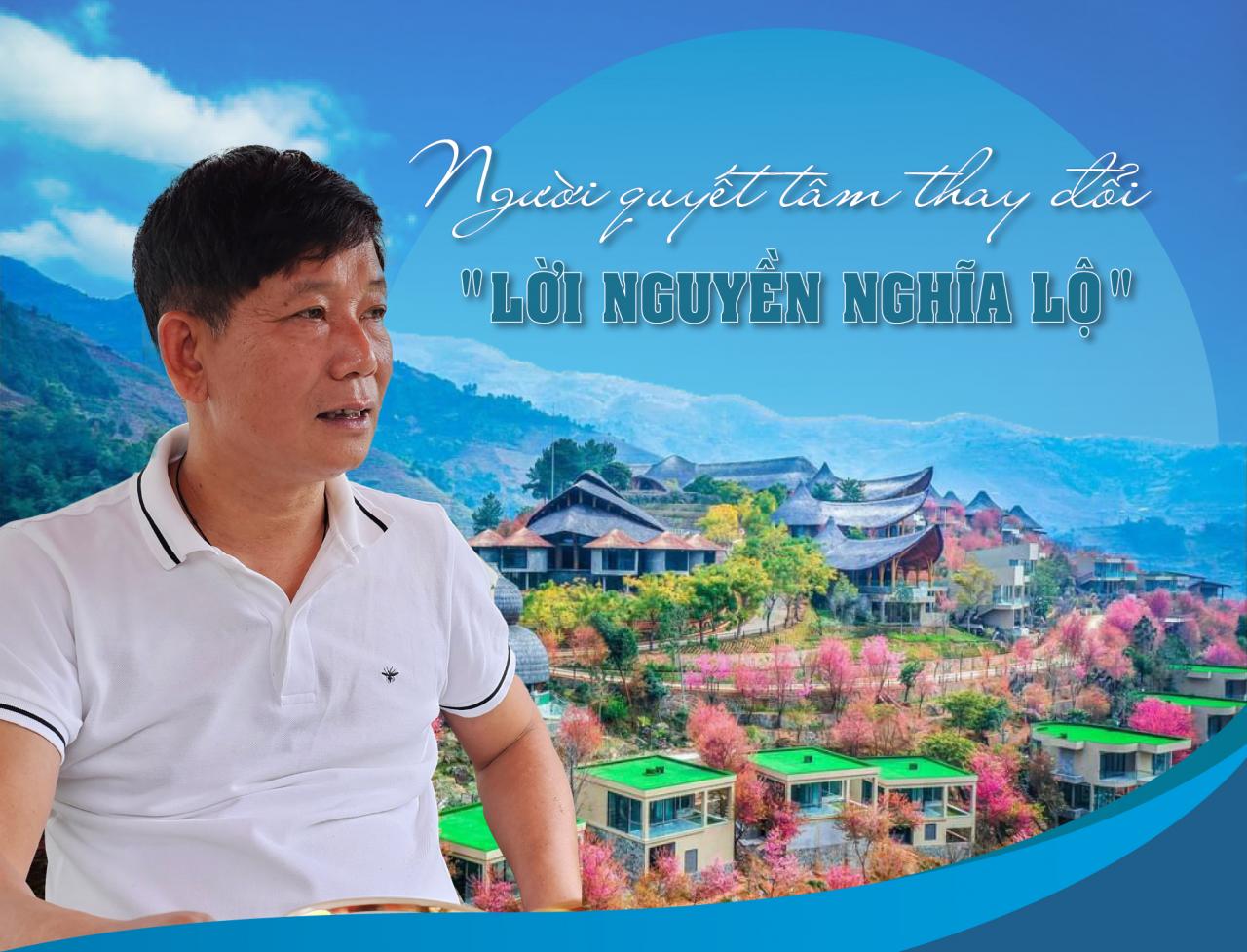
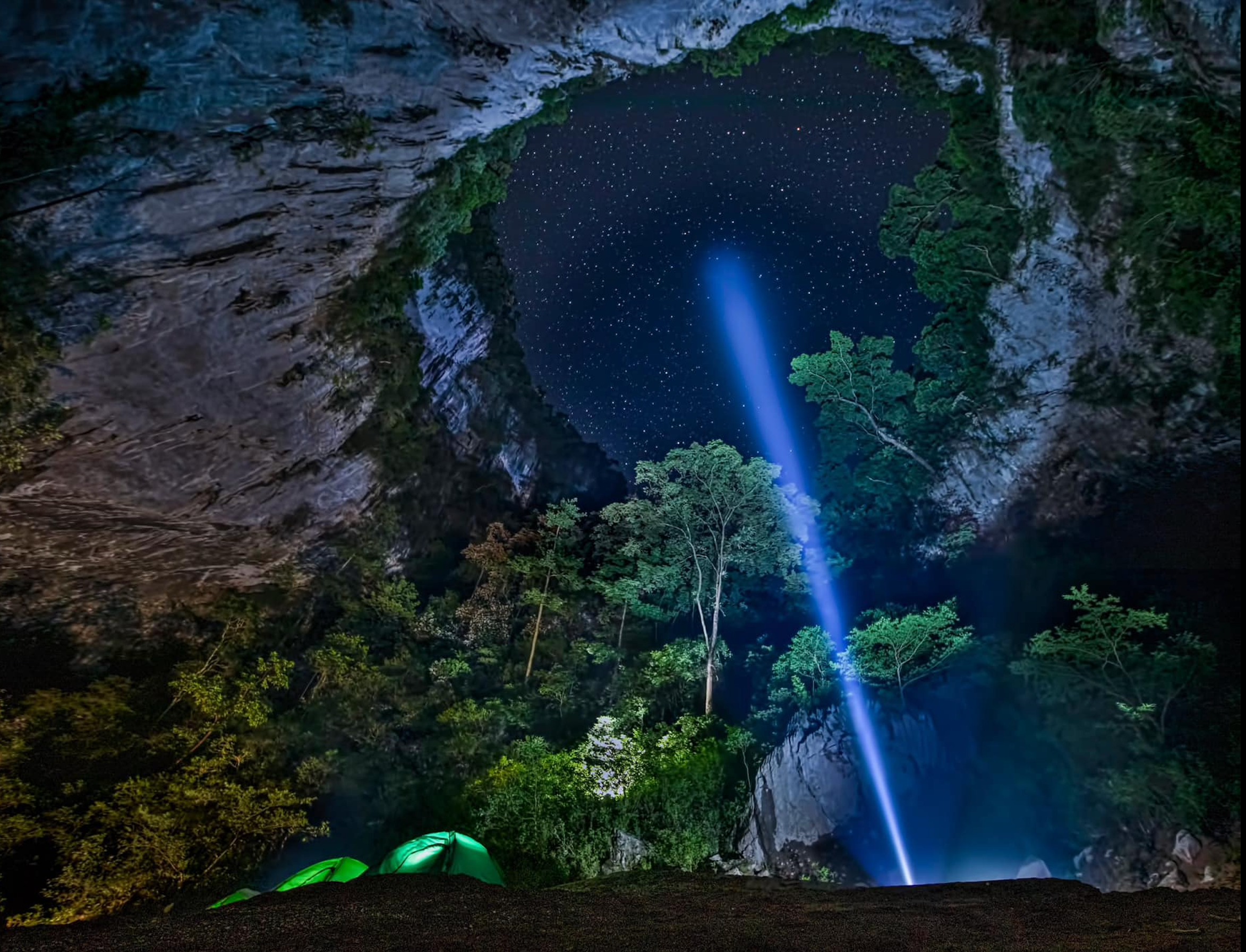




![[Photo] Paris "enchanted" by the blooming flower season](https://vstatic.vietnam.vn/vietnam/resource/IMAGE/2025/3/21/e967dc548ff74f9ca8e89d72c3608825)
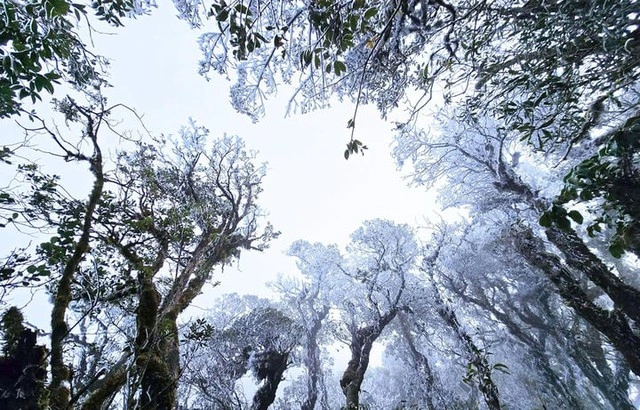

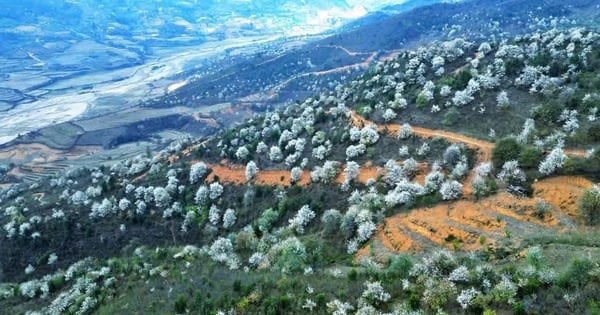

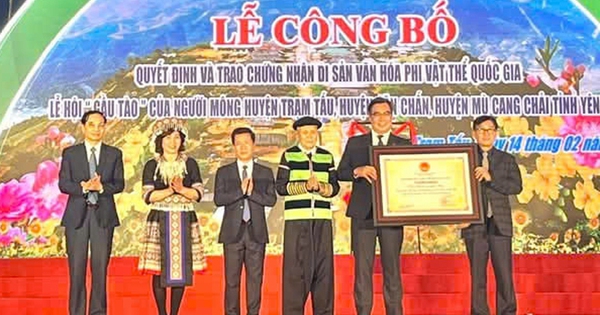


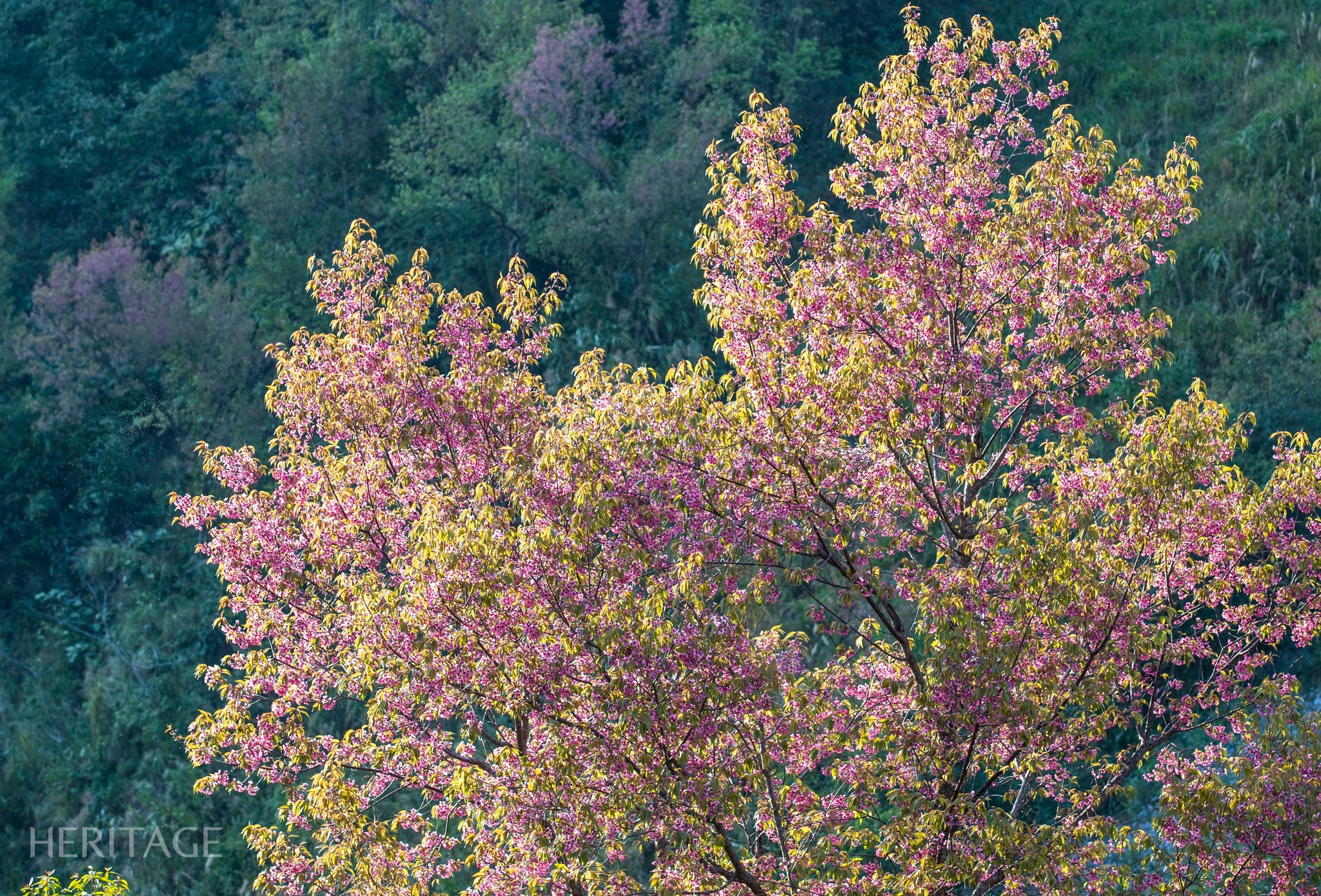





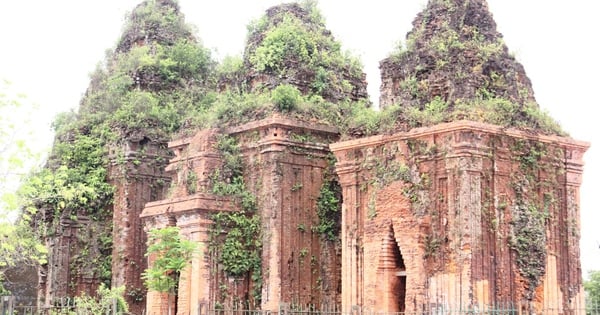
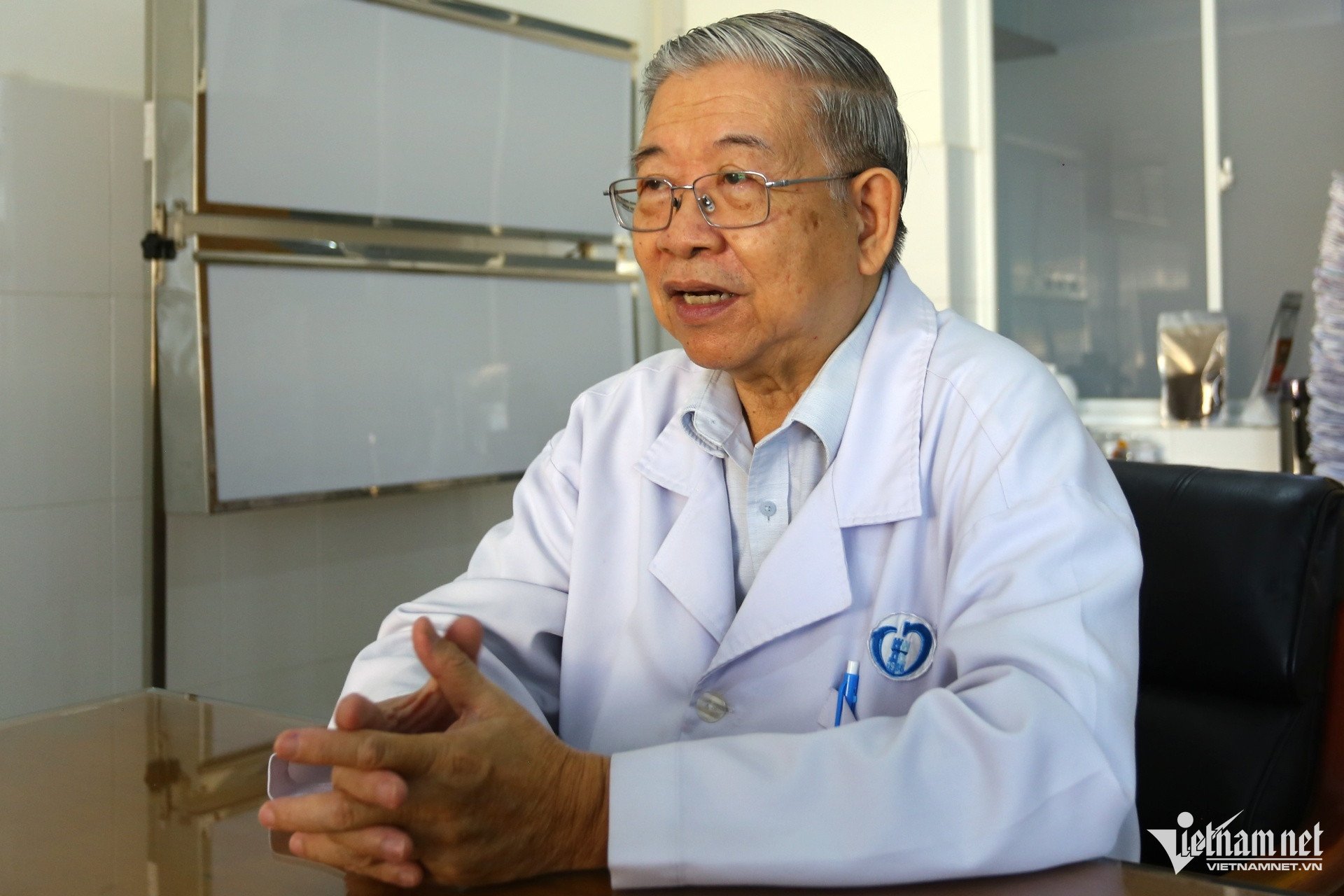




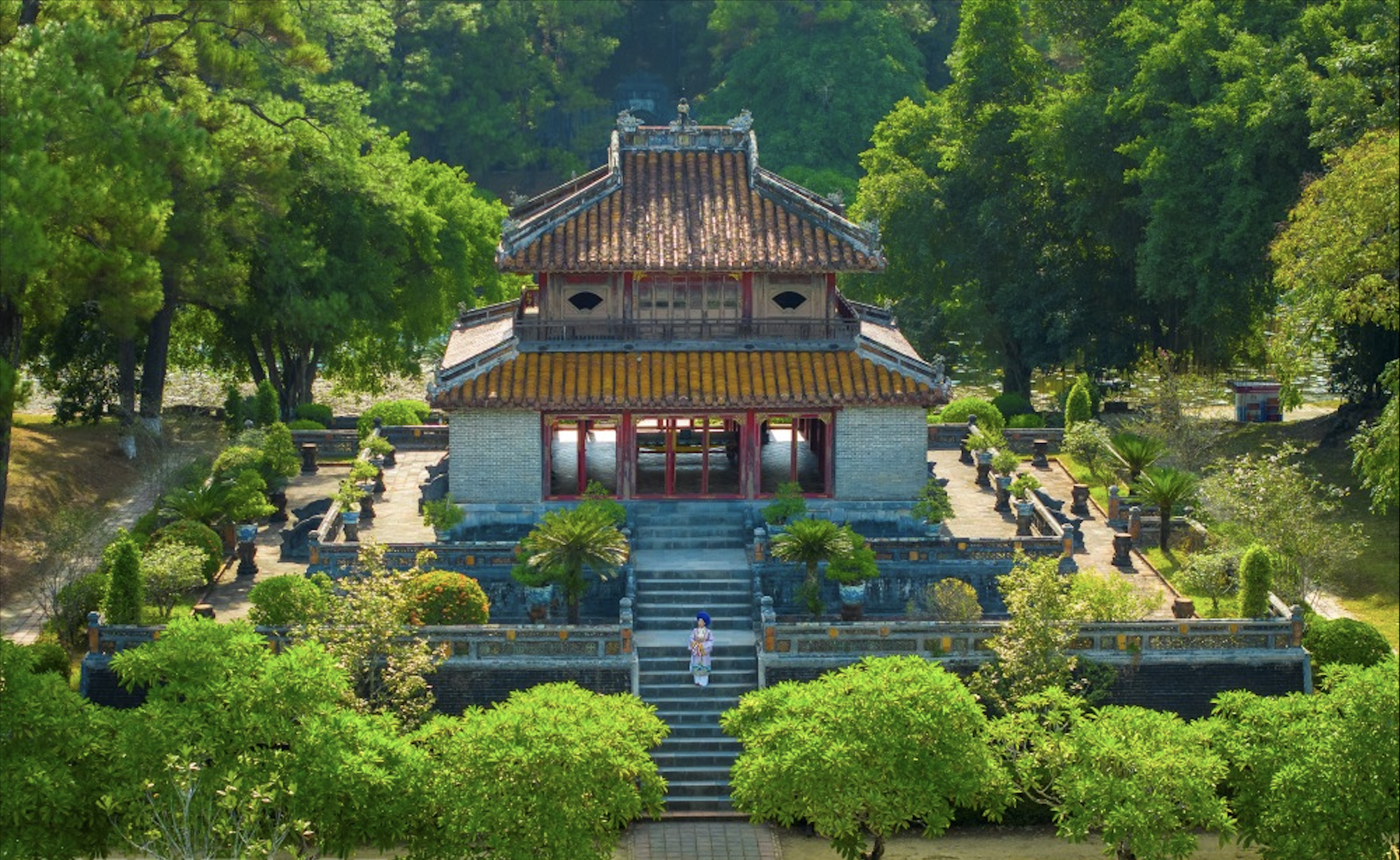
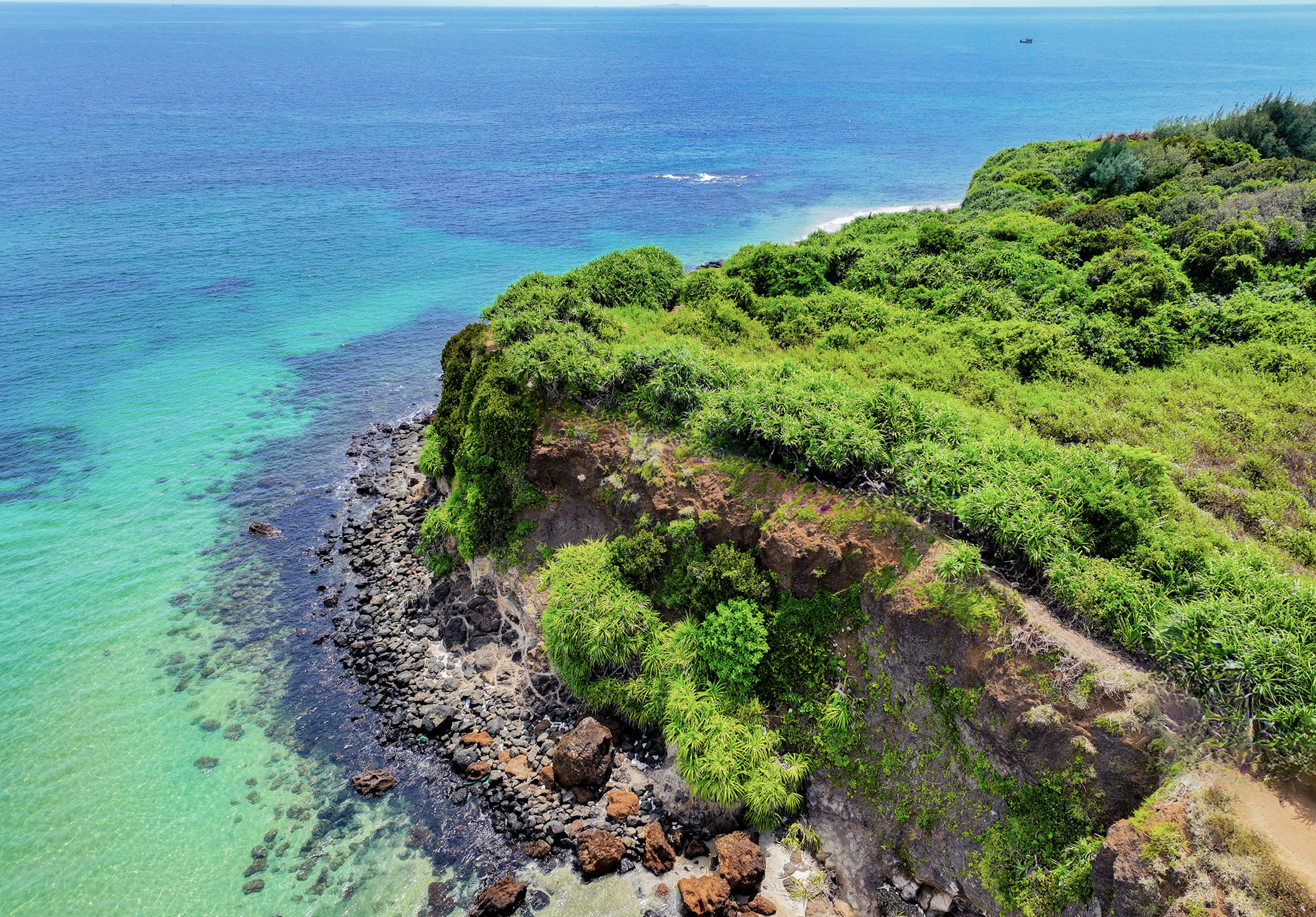

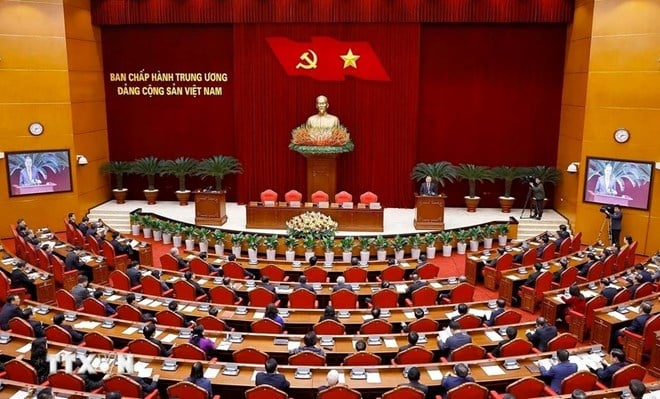
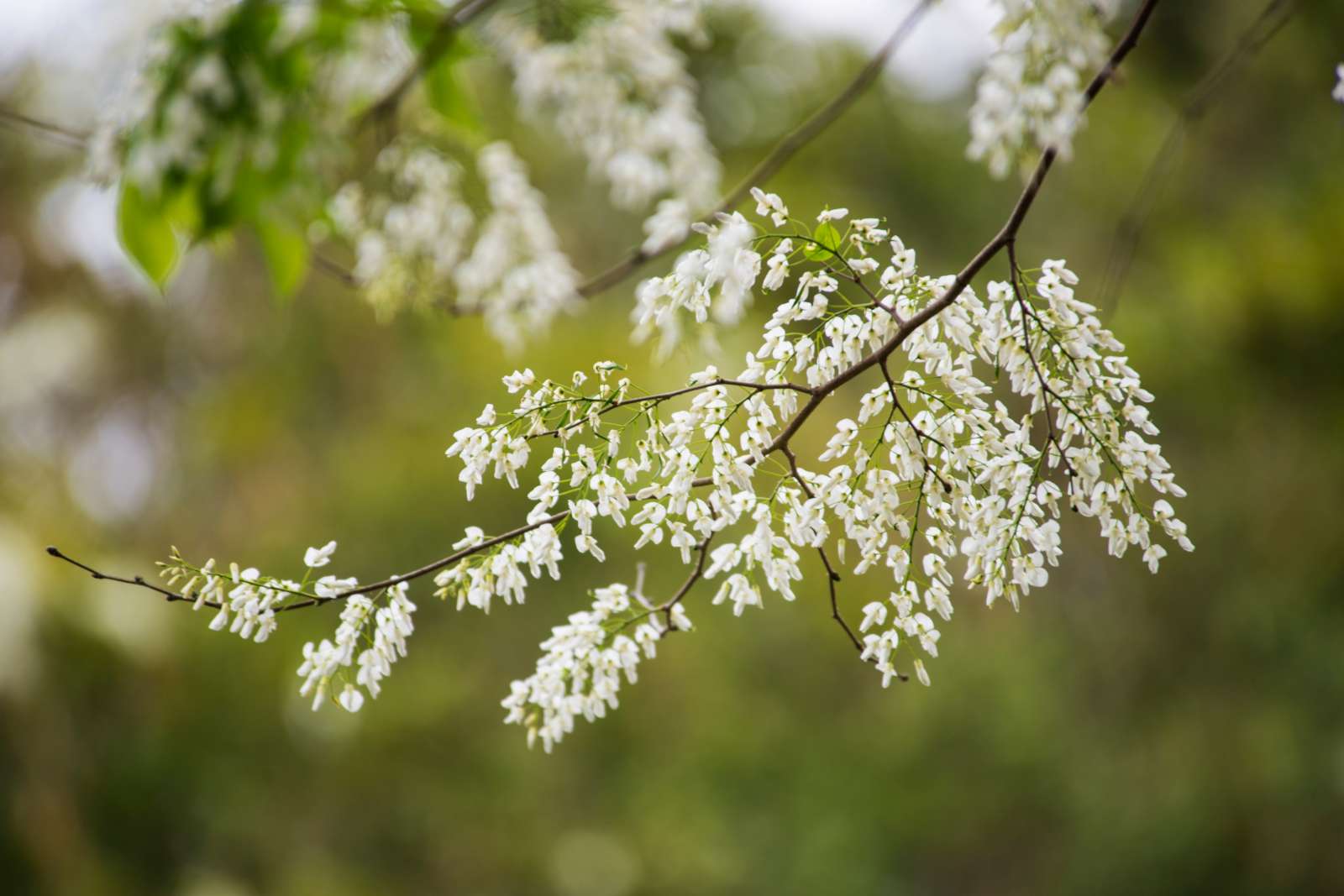
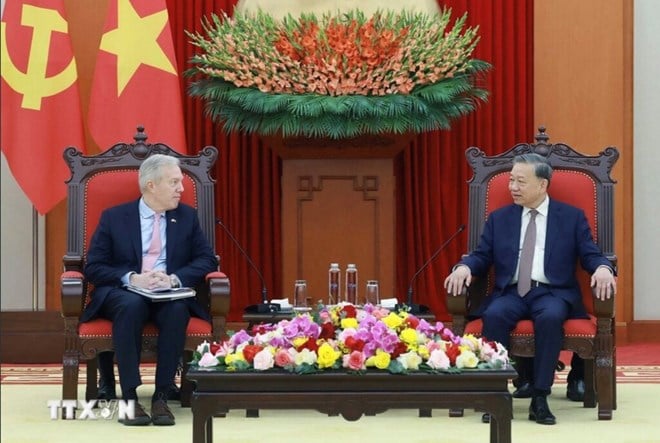


![[Photo] President Luong Cuong receives former Vietnam-Japan Special Ambassador Sugi Ryotaro](https://vstatic.vietnam.vn/vietnam/resource/IMAGE/2025/3/20/db2d8cac29b64f5d8d2d0931c1e65ee9)
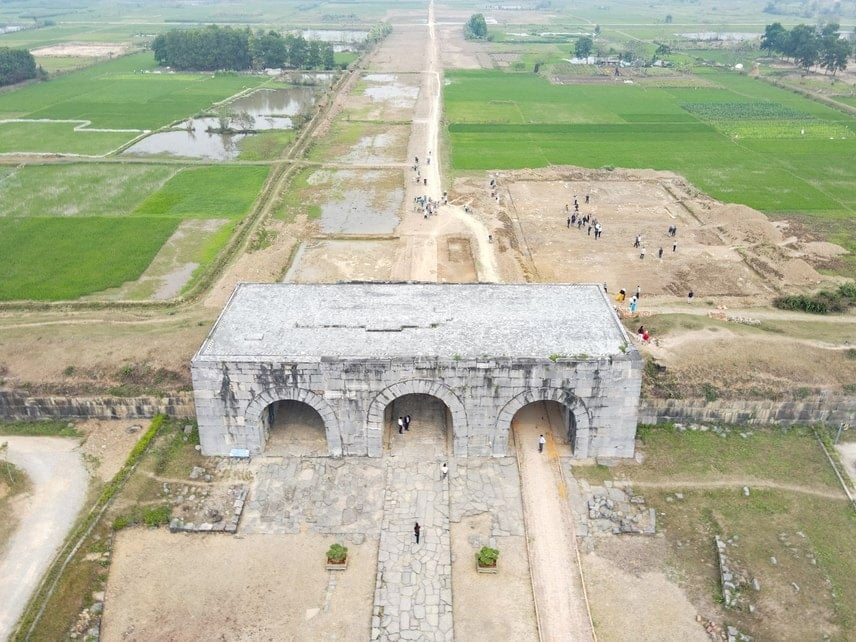

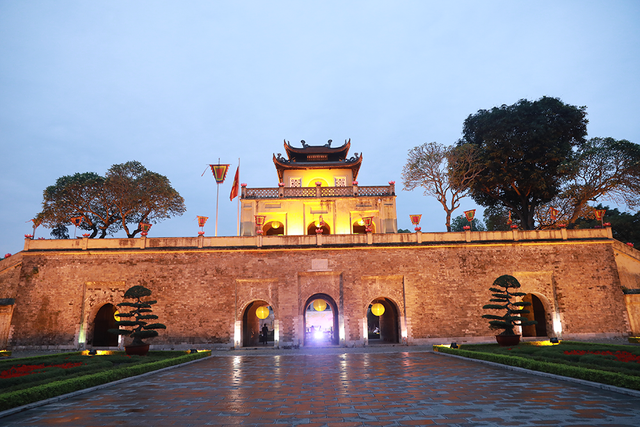

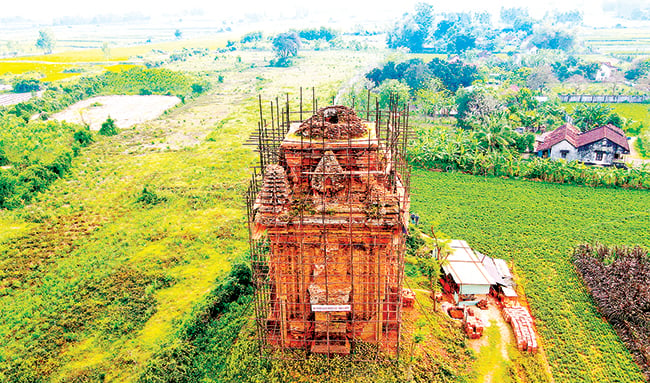

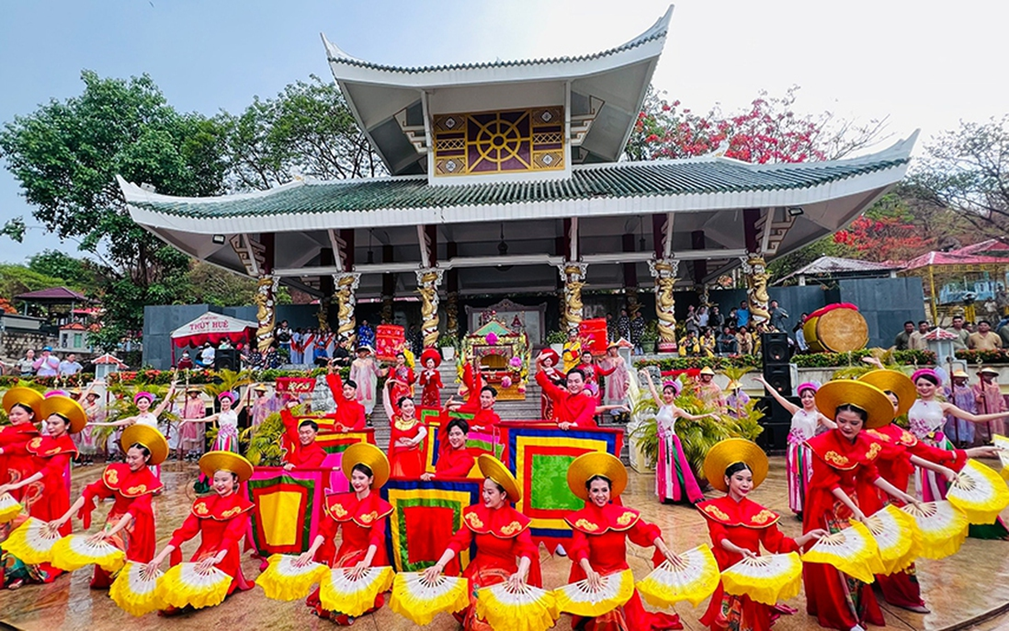








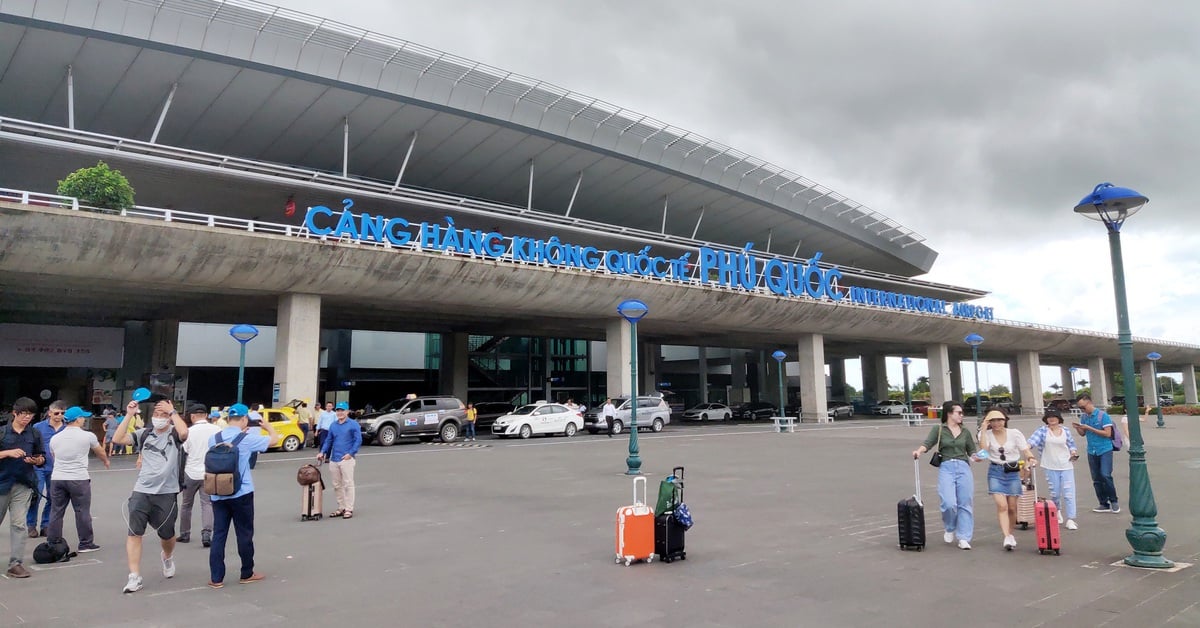




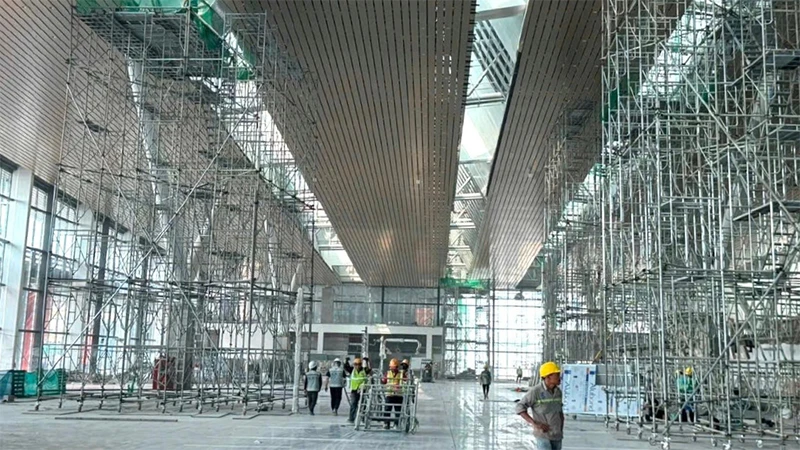


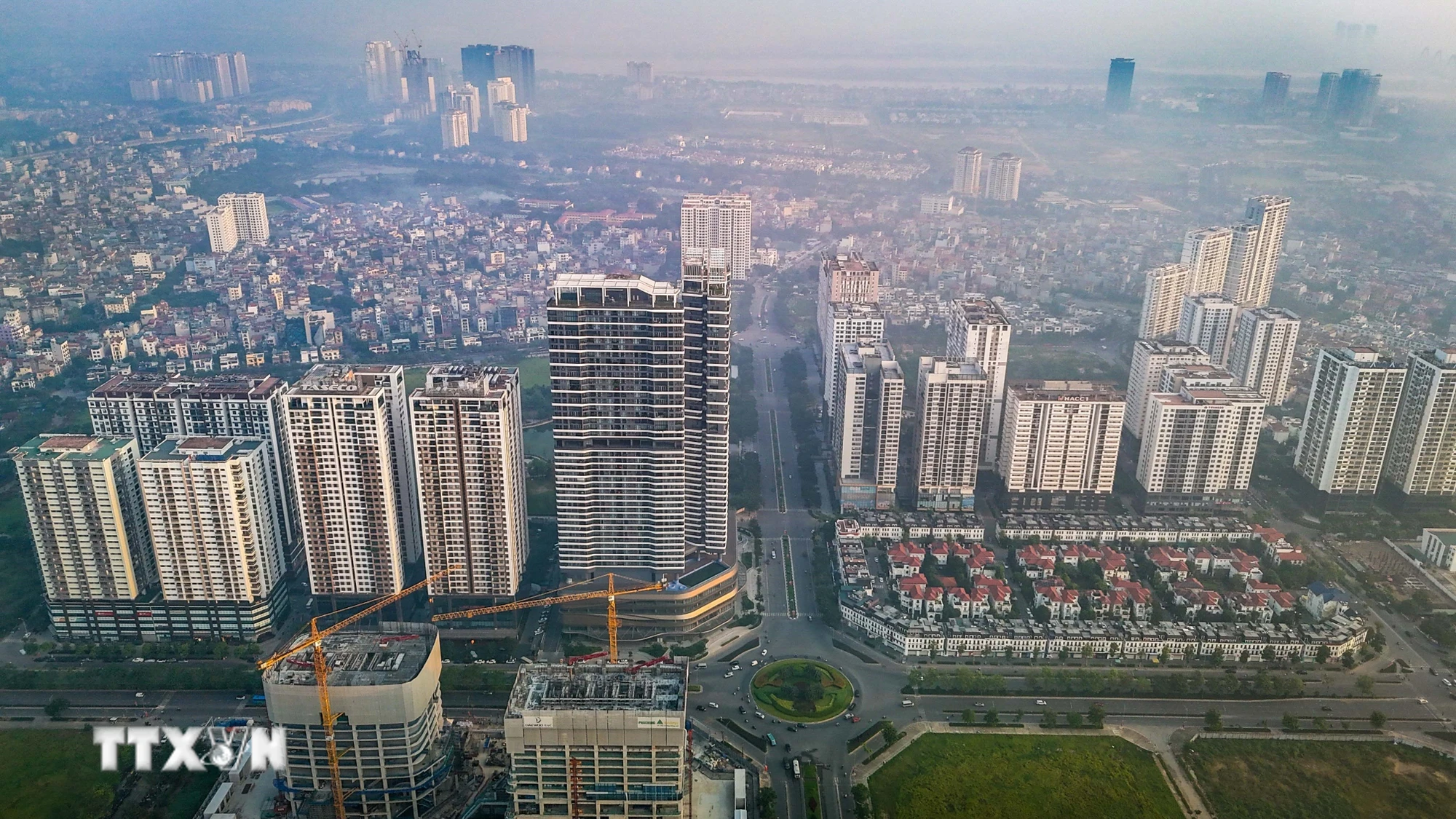







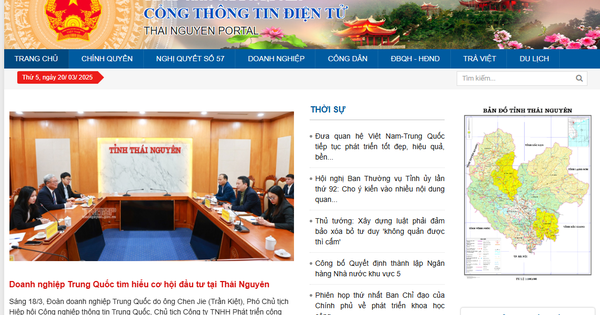




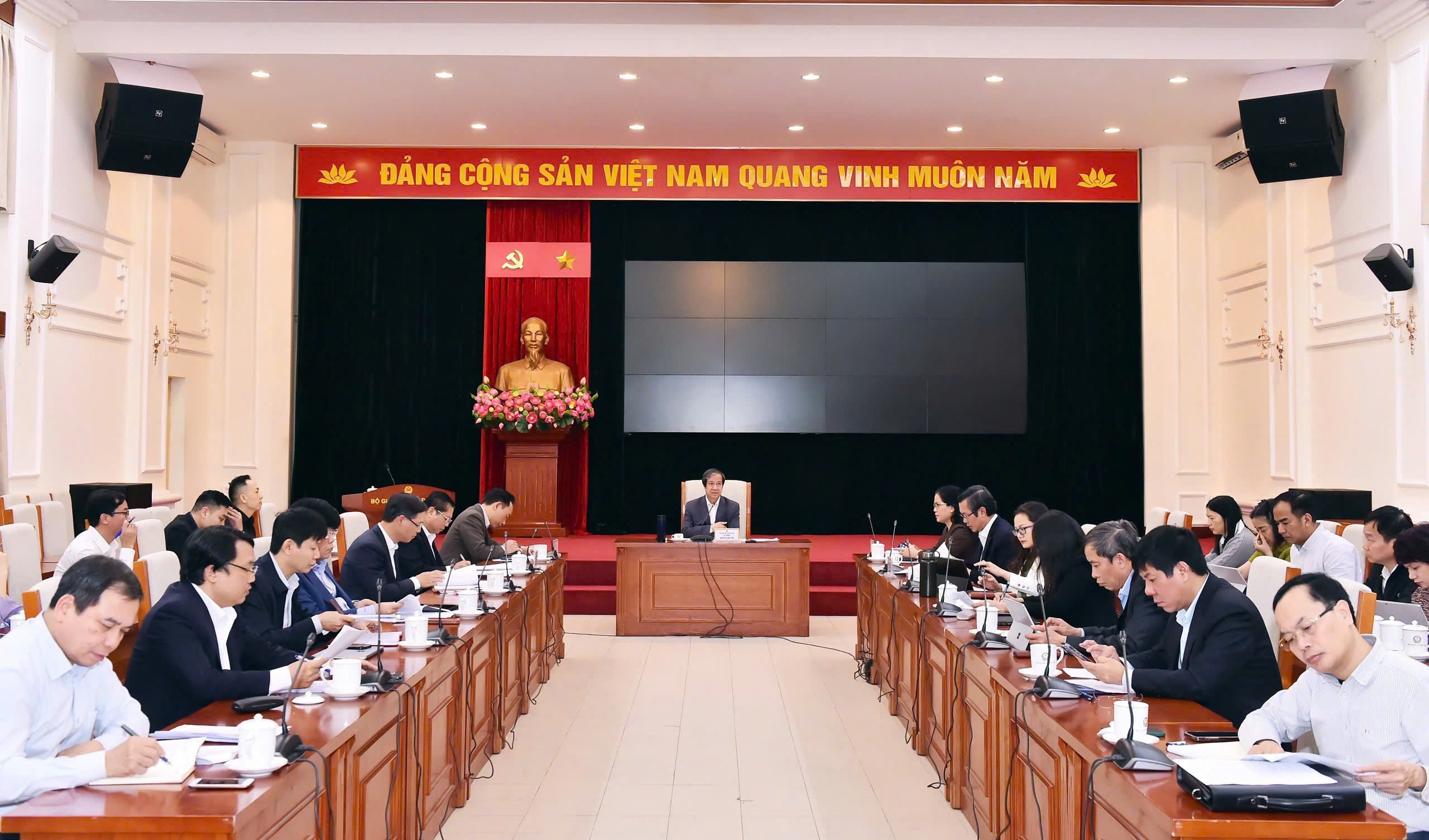
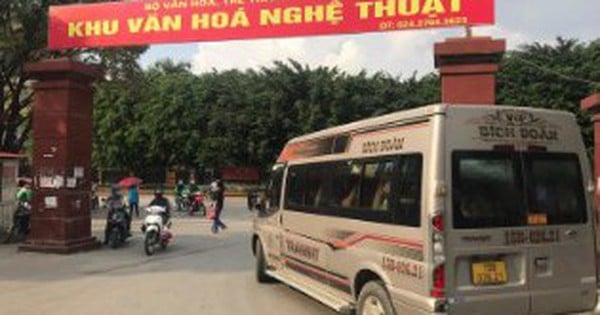


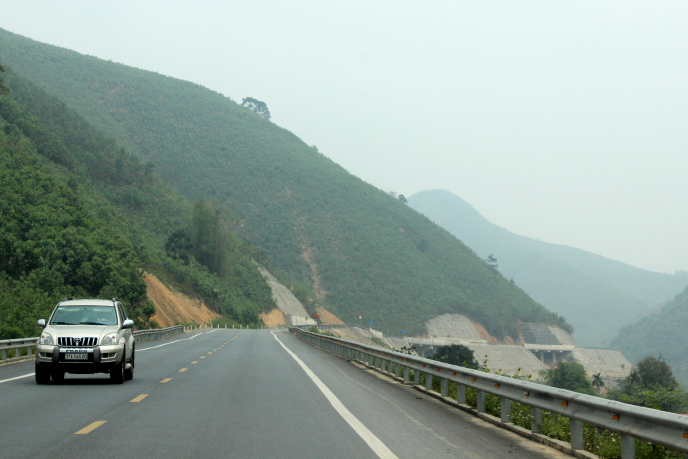
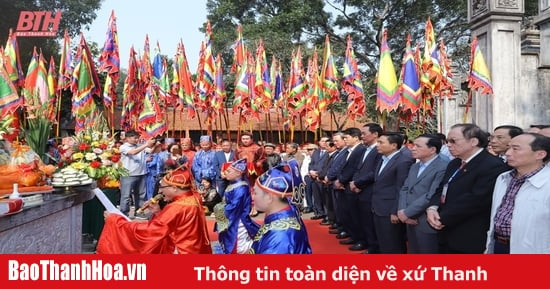
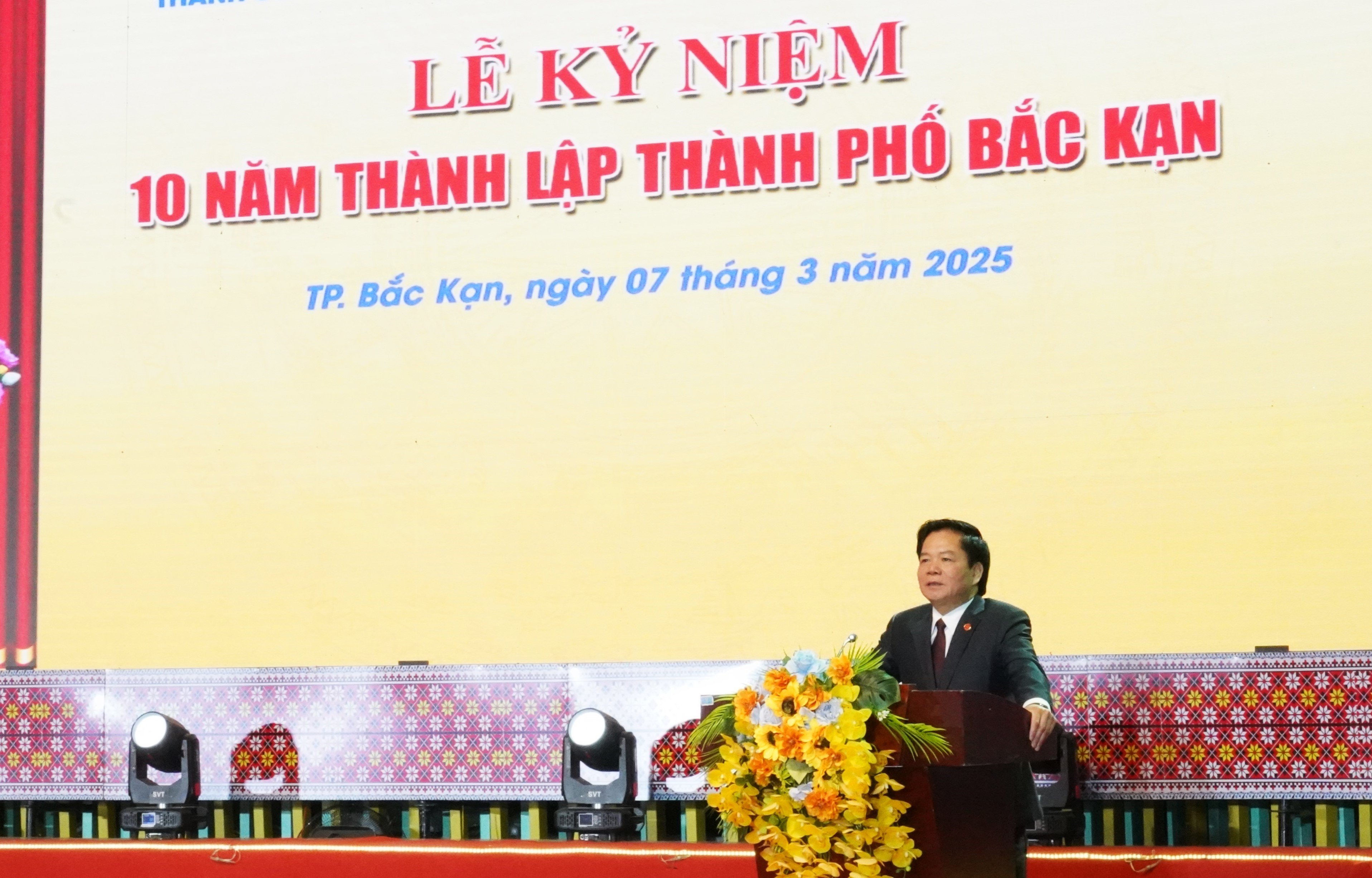

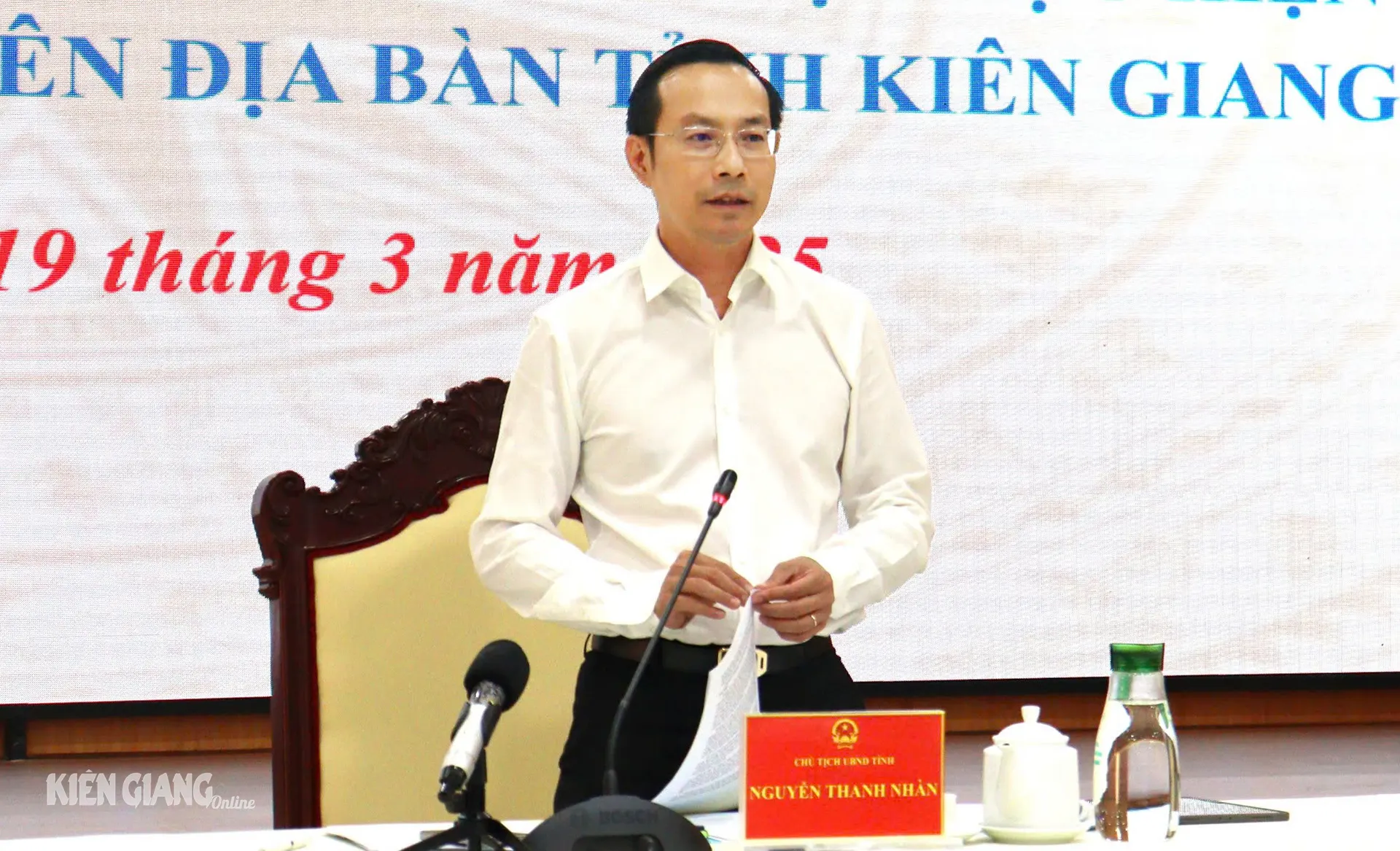

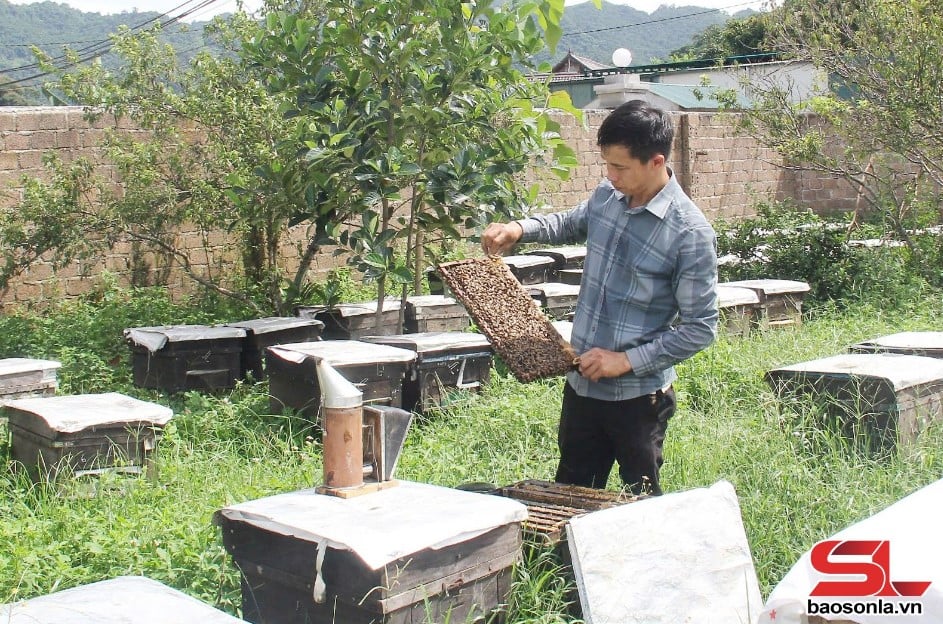

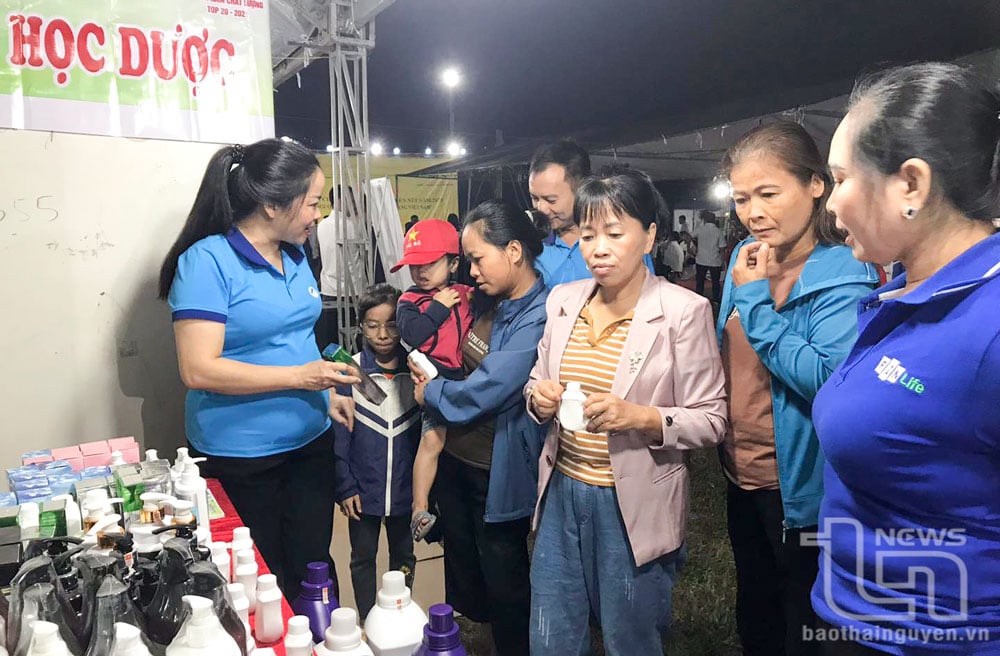


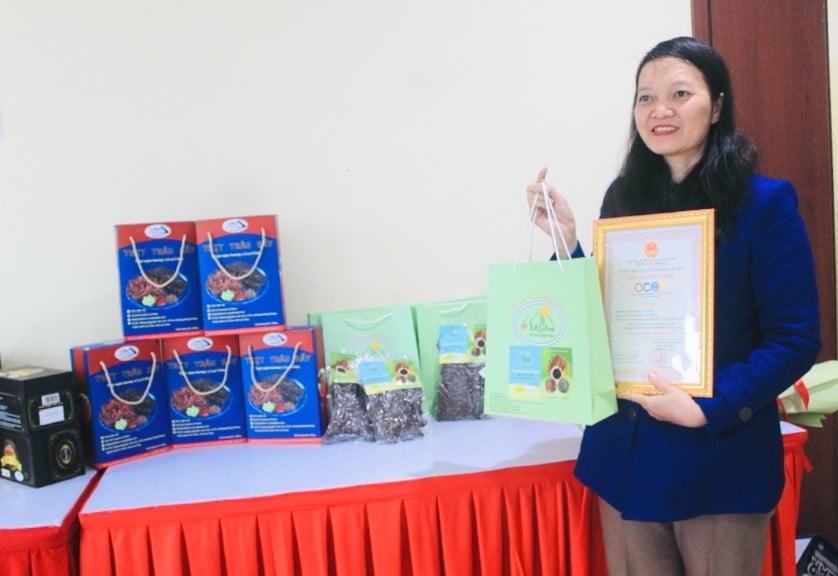

Comment (0)